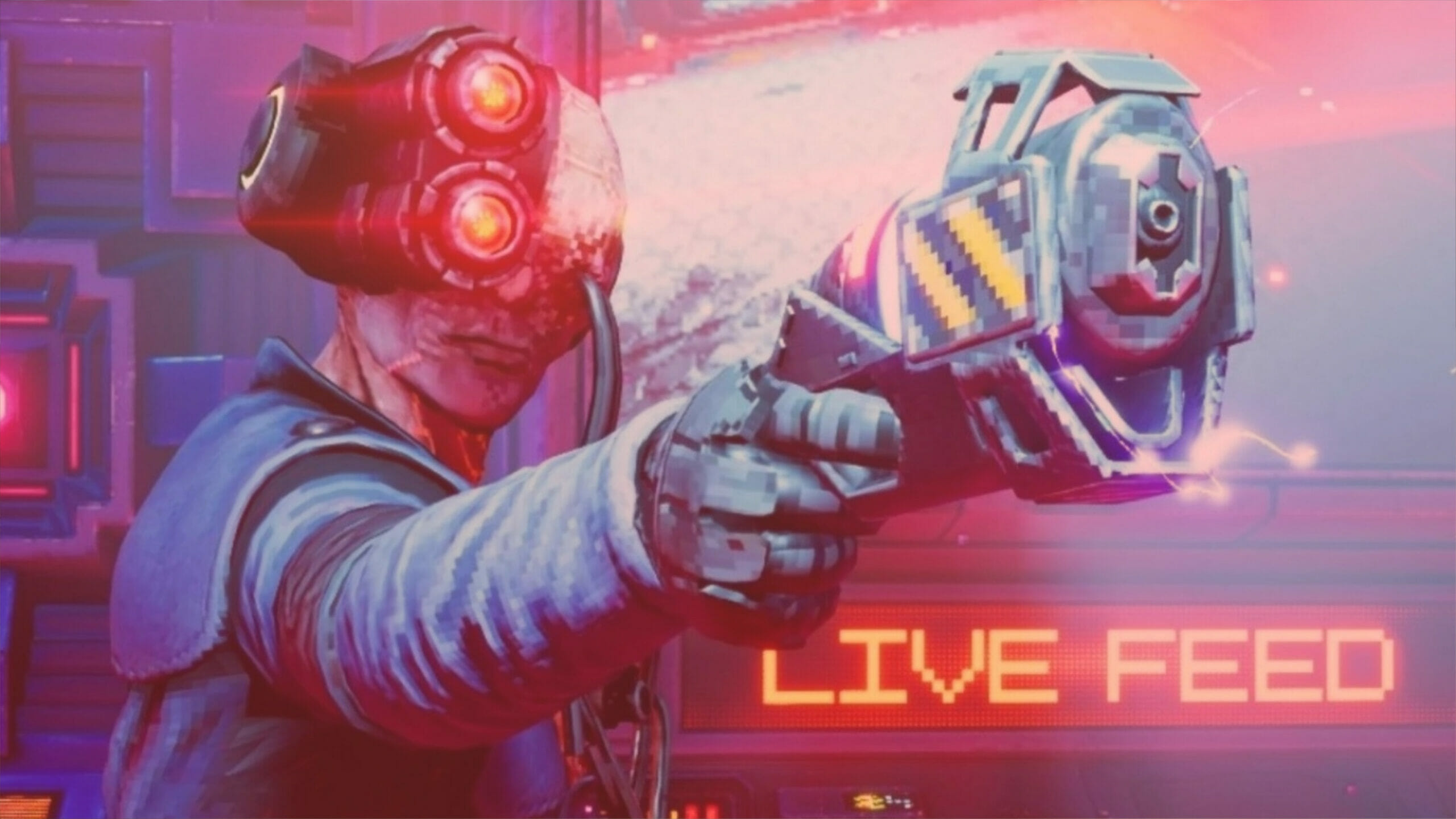Ask any ten gamers about the most influential horror title, and nine times out of ten, the answer will undoubtedly be the highly influential 1994 science fiction horror title, System Shock — a masterpiece of unprecedented first-person cyberpunk horror the likes of which Observer and SOMA (two incredible and genre-defining titles) can only dream of achieving. It even paved the way for games like Bioshock, with its duplicitous and nuanced narrative and otherworldly, yet scarily realistic, alternative setting. The question then, of what a total remake could bring to the table other than nostalgia, is raised. The answer: a modern day classic and legacy beholden to the source material it faithfully adapts. System Shock, by Nightdive Studios may have started life as a fan project on Kickstarter, but as its launch nears, the game is nothing short of exceptional.
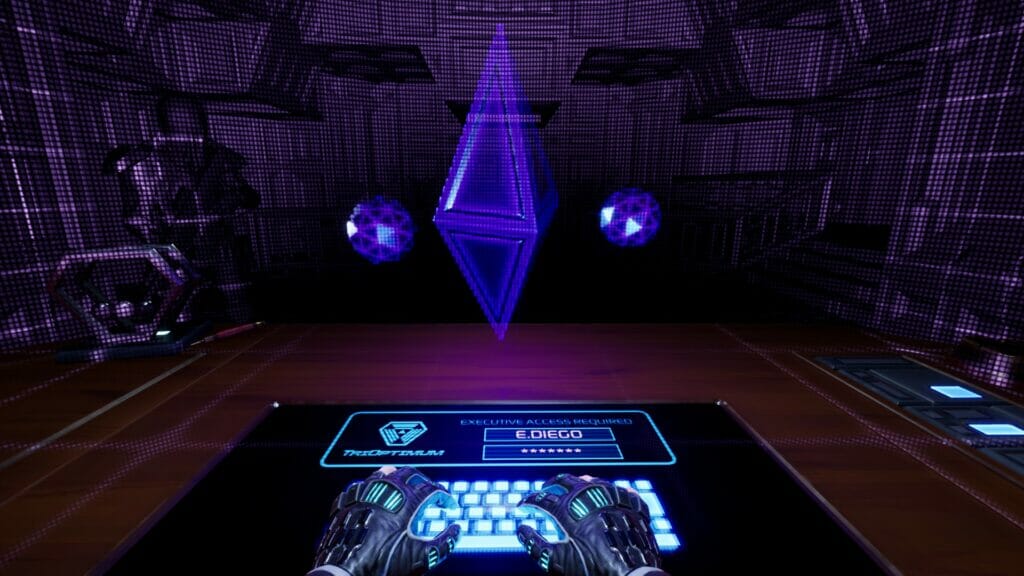
As 2023 approaches its midway mark, video gamers can comfortably agree with how the era of sequels has finally ended, and instead the one of the remake is well underway. With iconic titles such as Final Fantasy VII Remake and Resident Evil Remake spearheading two wholly different types of “remake”, one must attain what sort would best suit the fanbase of yet another classic video game. Nevertheless, Nightdive Studios has masterfully opted to go the Resident Evil route: recreating the game, almost exactly as it was twenty years prior, with added modernisation and current-generation accessibility. A new coat of paint may be the most obvious “upgrade” to the title, but below the bonnet certain changes and sensibilities have been added to skyrocket nostalgia levels, whilst also bringing, what is effectively, a whole new game to multitudes of gamers.
At its most basic level, System Shock seems light on narrative, with a large emphasis on puzzle solving and gunplay; but it goes much deeper than the first impressions might allude to. The player takes on the role of a nameless hacker. It opens with a cool overview of what the world is like, right before the company they are actively hacking, Tri0ptimum, finds and incarcerates the hacker. As fate would have it, however, one of the heads at Tri0ptimum has other plans for the hacker: lift all ethical blocks from the company’s artificial intelligence (AI), S.H.O.D.A.N.. Once done, however, things immediately turn awry. Waking up sometime later in a medical facility aboard Citadel Station, it is now up to the hacker to get off the maze-like space station in one piece.
The premise is ripped straight from the 90s classic, and the remake remains equally as edgelord as the era affords, complete with evil AI gunning for the player’s head. Similarly, the overall gameplay design is not all that much different. The game features scary maze-like design that can easily make the hairs of any horror game veteran stand on-end. Hallways are claustrophobic and rooms are dark and dank. Corpses are strewn everywhere, and gore lines the floors. The horror displayed is visually stunning in its effectiveness, but what makes it even more effective is the sheer amount of mental prowess the game asks of its players; and it is tiring in the best of ways.
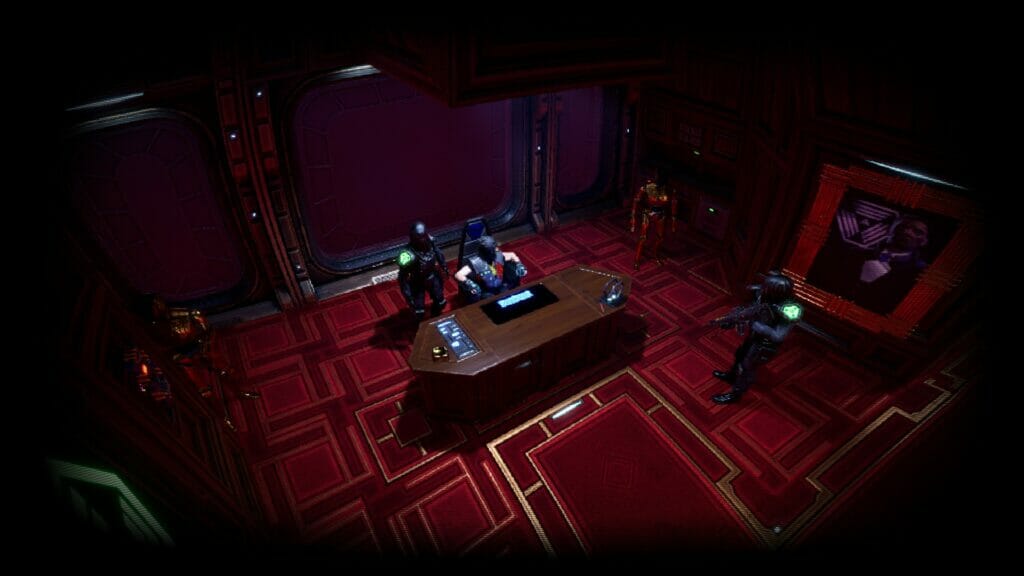
Beyond shooting and looting, System Shock is first and foremost an exploration game featuring an extreme amount of puzzle solving. Its emphasis is so large, players can even set the challenge of its puzzles (as well as enemy numbers and AI difficulty) before they start the game. From opening panels exposing wiring that needs to connect live feeds from one side of the board to another, through to door codes that need figuring out through environmental or audio clues; puzzles come in multiple shapes and sizes. It does not stop there, however, with the map itself being a puzzle to figure out. Doors only open if players have picked up the correct access cards (all of which are coloured accordingly), and certain rooms feature their own little platforming puzzles that need completing before progress can be made.
Citadel Station follows the same progression and exploration structure as its predecessor, with each “level” of the station becoming progressively more challenging to traverse. Enemy variations become a little bit more challenging to deal with, while puzzles skyrocket in difficulty.
The basic premise of surviving remains tied to the game’s first-person shooter designation. As such, options for dealing with enemies (and S.H.O.D.A.N. will throw many enemies at the player), are to deal with them head-on, or to run away. Guns are plentiful throughout Citadel Station, but the lack of ammunition turns every encounter with enemies into a choice, more so than a necessity. With that said, players will have to deal with enemies more often than not, regardless of their ammunition situation. Luckily, bashing enemy heads in with a pipe or a wrench is equally as effective of a strategy as is shooting them squarely in their grotesque faces.
Enemy types are not as varied as one would hope to see in a modern title, but they are spread out enough not to remind players too much of how little variation is present in System Shock. Mutants make up the bulk of the enemies players will go up against, while robot units and cyborgs get added to the mix not long after the encounters begin. Unlucky players will quickly run into bigger armoured military bots as well, with the occasional mega strong enemies soft locked behind story progress.
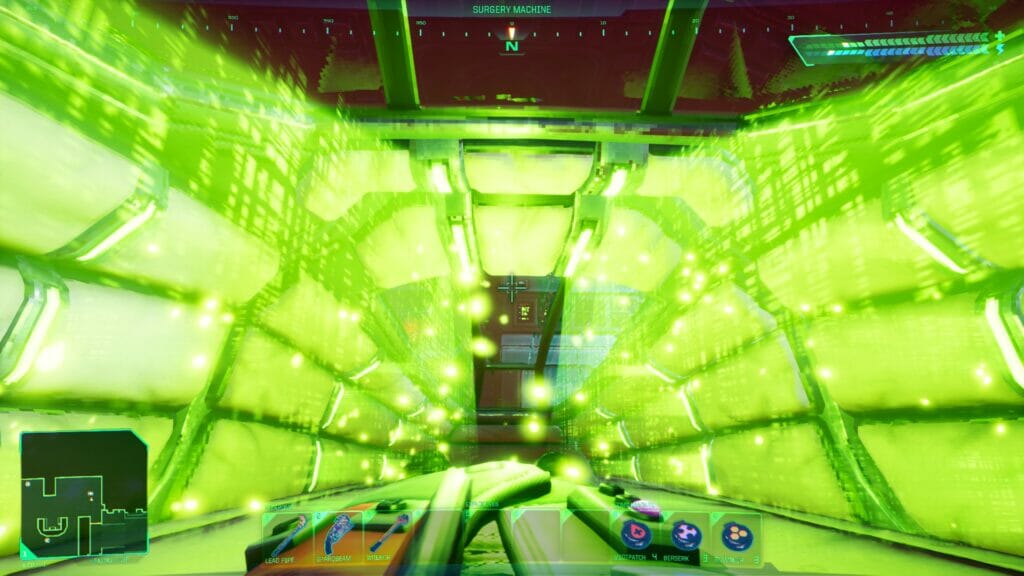
With all of the above in mind, it is clear System Shock is as faithful of a remake as one could hope for, and that includes the stunning aesthetic brought forward by the 1994 classic. While the game plays in widescreen, ultra-widescreen, and even on dual displays; the overall look and feel is still very much one of a 90s sci-fi shooter. Models are crisp and clear, and textures are immaculate in their design… however, everything UI-related, including the game’s menu systems, hearkens back to the good old days of the nineties, where user interfaces were ostentatious displays with neon lighting and over-designed filigree. Picking up body modifications (most of which are hidden around the map with no hints) will gradually fill up an easy-to-understand mod screen, while items and loot will quickly fill up the old-school item-limited inventory.
Players can get rid of items while retaining some of their value by reducing them to little blocks, while more credible items worth money can be recycled into cash at the few recyclers dotted around every level. The small inventory is admittedly quite a hindrance at times, but the design makes total sense in the grand scheme of things. Picking and choosing what to keep for use and what to throw away is a challenge in and of its own; and adds to that mental reliance the rest of the game seems to push heavy handedly down player throats… and it is incredible.
Video games nowadays have become accessible bores. From casual looter-shooters, through to extraction shooters with a bit more risk/reward attached to them, there is a definite stagnation in the first-person shooter category. As such, the constant need to think, whether it be about inventory limits, encounters, or puzzles; requires a level of mental prowess many players may not be interested in at first glance. However, simply saying this is a breath of fresh air is not doing the game (let alone the genre) justice. It is, legitimately, such a unique new experience within the genre, and is an aspect more games should adopt!
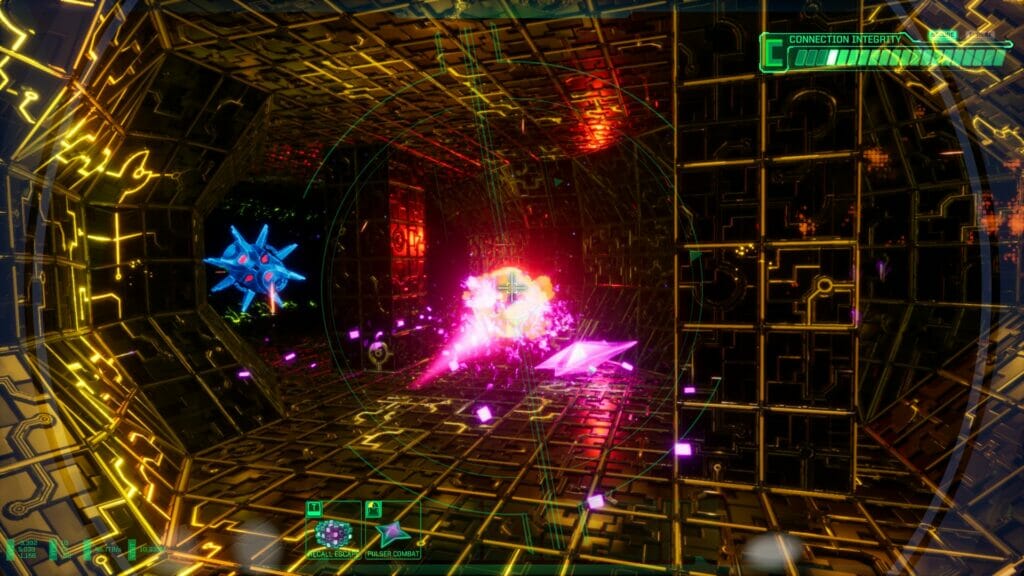
System Shock by Nightdive Studios is a marvel of a title, whilst also serving as an utterly transcending and faithful adaptation. The game brings the iconic 1994 shooter to life in modern and unique ways, allowing the classic to be experienced by an entire new generation of video gamers. Similarly, it introduces a unique type of gameplay that many games today have all but forgotten about. It requires thinking, encourages exploration, and absolutely does not hold the player’s hand during any of its many challenging levels. Faithfulness is what System Shock beckons, yet perfection is what it achieves.
Verdict:
EXCEPTIONAL
| PROS | CONS |
| Exceptionally faithful to the source material | UI might be a bit overbearing to some |
| Nostalgia galore | Enemy variety is a bit lacklustre |
| Gameplay is a breath of fresh air |
Title reviewed on Microsoft Windows (via Steam) with code supplied by Plaion.
Review Methodology | Ethics Policy
Junior Editor at Vamers. From Superman to Ironman; Bill Rizer to Sam Fisher and everything in-between, Edward loves it all. He is a Bachelor of Arts student and English Major specialising in Language and Literature. He is an avid writer and casual social networker with a flare for all things tech related.

